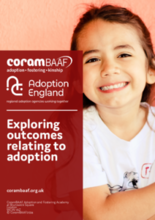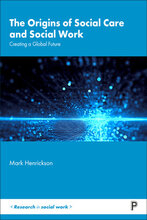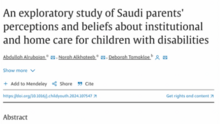Displaying 191 - 200 of 10392
This Literature Review was commissioned by Adoption England’s Regional Adoption Agency (RAA) Leaders’ Group to support practitioners in care planning for children. This summary document is for use by those directly involved in care planning, and also aims to potentially provide some support for those writing care plans and court reports for children needing permanency away from their family.
CarINg aims at helping girls and boys in the alternative care system (care leavers) become protagonists of their own future by making them feel part of a welcoming community.
Disability Rights International, as part of the Global Coalition on Deinstitutionalisation (GC-DI), organized a series of thematic workshop on the UN Guidelines on Deinstitutionalization, including in emergencies.
Bringing together interdisciplinary scholarship, Mark Henrickson argues that it is essential to understand and critique social work’s origins in order to work out what to retain and what must change if we are to achieve the vision of a truly global profession.
This study investigated social orphans through narratives of young people with experiences of growing up in institutional care in Latvia. The study uses the life histories of participants to explore the phenomenon of social orphans.
This retrospective, national-scale, observational e-cohort study of children entering care in Wales looked at the impact of cumulative risks of parental difficulties on the likelihood of care entry and the impact of the parent's sex.
Adopting a qualitative approach, this study gave voice to seven adoption applicants in Romania who began the adoption journey with one or more children but did not complete the legal process. The goal of the researchers was to understand their experiences throughout the adoption process and disruption. The present study is part of a larger research project that focused on the resilience of the adoptive family in Romania.
The present qualitative study seeks to understand parents' perceptions of home or institutional care for children with disabilities. The study utilized an exploratory qualitative approach paradigm with five focus groups in the Qassim region of Saudi Arabia.
This qualitative exploratory-descriptive study outlines alternative approaches to psychosocial support for Orphans and Vulnerable Children in four municipalities of Vhembe district in Limpopo Province, South Africa, in the form of community-based interventions.
The authors of this study aimed to gain insight into the perceived living environment in different residential youth care settings from the perspectives of 26 youth, 14 parents, and 35 professionals in the Netherlands.









